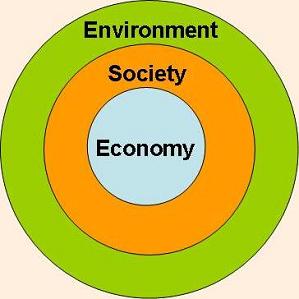
Middle Class Welfare
In particular, we oppose the baby bonus and think it is short sighted from a sustainability perspective. The economic implications of an ageing population pale into insignificance compared to the problems associated with overpopulation. Furthermore, if our population was genuinely low (we do not think it is), we would be better off with well targeted immigration policy rather than the ‘reverse eugenics’ that inevitably result from the baby bonus. Most forms of government assistance are extended to those not in genuine need. The maximum income at which people still receive assistance should be decreased. We oppose the first home owner’s grant. This grant has backfired and had the opposite outcome to that intended, as is so often the case with ill-considered, populist economic policy. It has caused a significant increase in house prices. This, combined with the high taxes required to support it, has made housing less affordable for Australian families. There should be no handouts for rainwater tanks. These breed mosquitoes and homeowners need to carefully consider their options rather than taking whatever the government will pay for. Instead, we should increase the price of water so it reflects the cost of the infrastructure required to supply it, the scarcity of the water, and environmental harm caused by sucking our rivers dry. People faced with the true cost of water wastage can then decide how best to save water. It is far more likely that they will simply choose to use less water rather than spend a small fortune so they can tip it on the ground in their garden. There are many options for capturing and storing water in the suburbs. Individual rainwater tanks for each household is one of the most expensive. Hauling a fraction of a cent worth of water round in a bucket to save the ‘precious’ resource is not a rational response. We oppose handouts for retrofitting rooftop photovoltaic cells (solar panels). Again, this is one of the most expensive options for reducing greenhouse emissions and was only implemented because of the vote buying potential. Subsidising electricity leads to waste. Instead, the price of electricity should reflect the greenhouse emissions it causes. There are far cheaper ways to reduce greenhouse emissions (eg, stop wasting electricity) and a price on emissions is the only way for the government to promote these options. Cutting middle class welfare, the introduction of taxes on greenhouse emissions and an honest price on water will allow for a significant reduction in income tax, GST, rates bills and other taxes. |
 The Sustainability Party of Australia supports help for those in genuine need. However, we oppose the bloated middle class welfare that has been built up by both major parties and the Greens. This ‘tax churn’ amounts to little more than taking with one hand and giving with the other (after a significant amount has been wasted on bureaucracy). High taxes harm the economy and remove a lot of the incentives to create jobs and improve efficiency and productivity, but give little social benefit in return. The motivation for these handouts often revolves around vote buying rather than genuine welfare.
The Sustainability Party of Australia supports help for those in genuine need. However, we oppose the bloated middle class welfare that has been built up by both major parties and the Greens. This ‘tax churn’ amounts to little more than taking with one hand and giving with the other (after a significant amount has been wasted on bureaucracy). High taxes harm the economy and remove a lot of the incentives to create jobs and improve efficiency and productivity, but give little social benefit in return. The motivation for these handouts often revolves around vote buying rather than genuine welfare.
